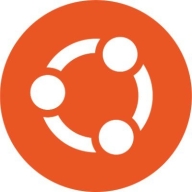

Ubuntu Linux and openSUSE Leap compete in the open-source operating system category. Ubuntu seems to have the upper hand with its faster boot times and comprehensive community support, thus enhancing usability and stability.
Features: Ubuntu Linux offers faster boot times, a wealth of free software, and long-term support releases that provide stability. Its package management and wide community support address various computing needs efficiently. openSUSE Leap ensures robust security with regular updates and is ideal for on-premises deployment, supported by a strong community network.
Room for Improvement: Ubuntu Linux could improve its compatibility with certain Windows applications and enhance its third-party management tools. Improved documentation and better support for Microsoft products are desired. openSUSE Leap needs better GUI stability and increased support for third-party applications. Enhanced documentation and better hardware compatibility would also benefit users.
Ease of Deployment and Customer Service: Ubuntu Linux is highly flexible in deployment, supporting private and hybrid cloud environments with strong community backing. However, users often rely more on community resources than official customer service. openSUSE Leap focuses more on on-premises deployment, benefiting from a community similar to Ubuntu, though with less cloud emphasis.
Pricing and ROI: Both Ubuntu Linux and openSUSE Leap are free and open-source, eliminating licensing costs. Ubuntu offers paid enterprise support options. Users of both systems experience cost savings by extending hardware lifespan and avoiding software fees, thus achieving a high ROI through stable and reliable performance.
| Product | Market Share (%) |
|---|---|
| Ubuntu Linux | 9.0% |
| openSUSE Leap | 5.7% |
| Other | 85.3% |

| Company Size | Count |
|---|---|
| Small Business | 2 |
| Midsize Enterprise | 1 |
| Large Enterprise | 4 |
| Company Size | Count |
|---|---|
| Small Business | 84 |
| Midsize Enterprise | 21 |
| Large Enterprise | 53 |
openSUSE Leap is a brand new way of building openSUSE and is new type of hybrid Linux distribution. Leap uses source from SUSE Linux Enterprise (SLE), which gives Leap a level of stability unmatched by other Linux distributions, and combines that with community developments to give users, developers and sysadmins the best stable Linux experience available. Contributor and enterprise efforts for Leap bridge a gap between matured packages and newer packages found in openSUSE’s other distribution Tumbleweed.
Ubuntu Linux is an open-source platform known for its robust security, ease of use, and rapid performance. Its lightweight design and comprehensive support system make it ideal for diverse IT environments, providing seamless management and scalability options.
Ubuntu Linux stands out with its open-source nature that allows extensive customization and access to a broad range of free software. It is widely praised for its stability and a vast package repository offering regular updates, enhancing its usefulness across different sectors. The platform is equipped with a lightweight design and excellent community support, making it scalable and easy to manage. While it could improve in areas like Windows software compatibility and user interface refinement, its benefits in enterprise management and development projects are undeniable. Improved documentation, better hardware integration, and enhanced third-party application compatibility are additional focal points to consider.
What are the key features of Ubuntu Linux?
What benefits should be considered from reviews?
Ubuntu Linux is prominently implemented in industries for tasks such as server management, application deployment, and software development. Its resource efficiency and open-source tool compatibility make it a favorite for programming, research, and cybersecurity. Companies frequently use it for web hosting, cloud services, and managing multi-user enterprise solutions.
We monitor all Operating Systems (OS) for Business reviews to prevent fraudulent reviews and keep review quality high. We do not post reviews by company employees or direct competitors. We validate each review for authenticity via cross-reference with LinkedIn, and personal follow-up with the reviewer when necessary.